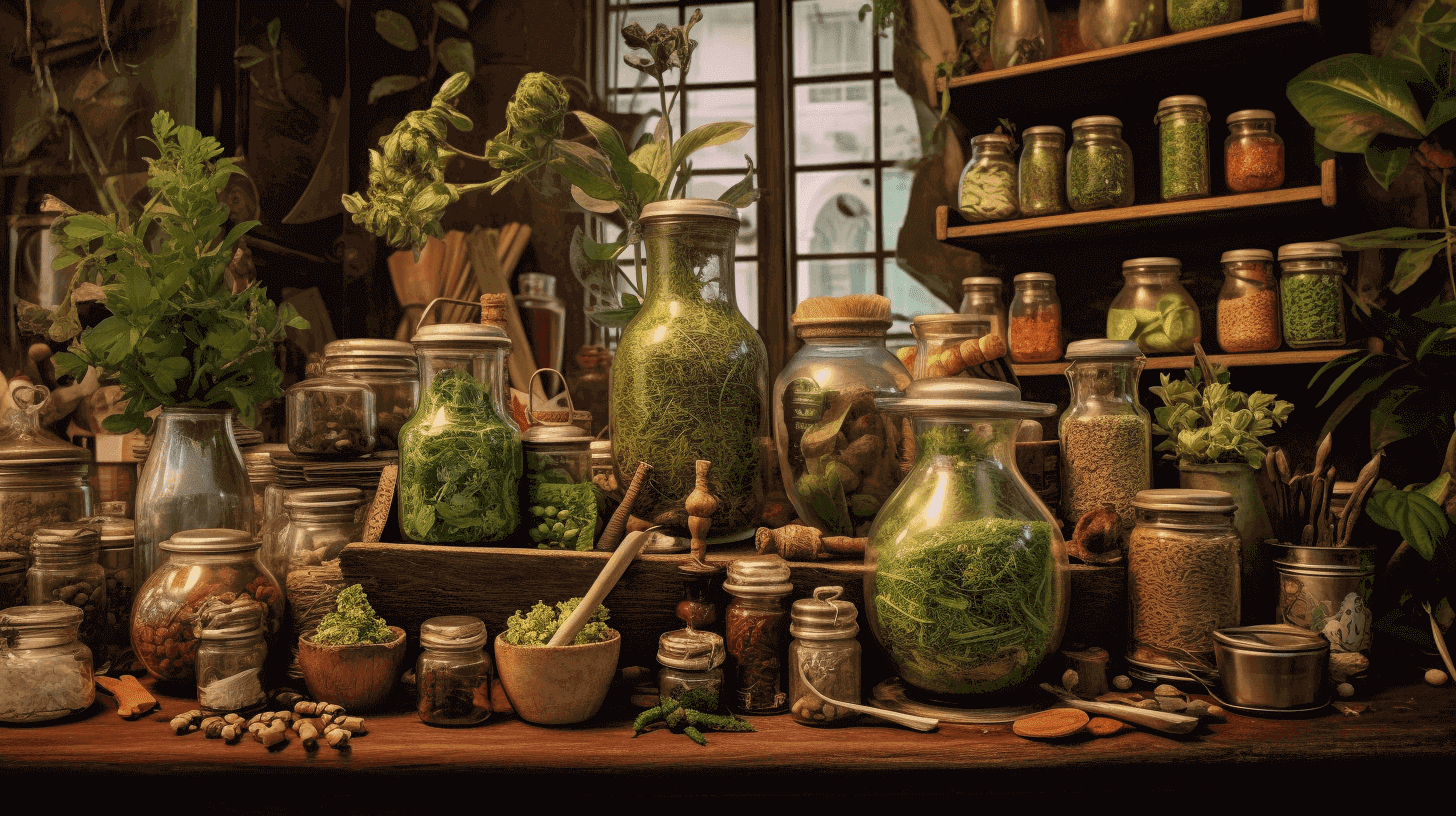Herb magic has been used for centuries in different cultures around the world. It involves the use of natural herbs and plants for magical purposes, often in the form of spells, rituals, and healing practices. Herb magic can be defined as any practice that uses herbs to achieve a desired outcome, such as prosperity, health, protection or love.
Definition of Herb Magic
Herb magic is a type of natural magic that involves the use of herbs for various purposes. The use of herbs in this way is not limited to any one culture or tradition but can be found throughout history across different regions and religions.
The practice typically involves incorporating specific herbs into rituals or spells with the intention of producing a specific outcome. Herbs are chosen for their unique properties and associations with elements such as earth, air, fire or water.
For example, rosemary is associated with healing and purification while lavender is often used for relaxation and calmness. Different combinations of herbs can also be used together to create more powerful effects.
Brief History of Herb Magic
The use of herb magic dates back to ancient times when people believed that plants had magical properties that could be harnessed for various purposes. In many cultures throughout history, herbalists were revered as healers who possessed knowledge about the medicinal properties and magical powers of plants.
In ancient Egypt, herbs were mummified along with the deceased Pharaohs due to their belief in their ability to protect them in the afterlife.
Similarly, Native Americans believed that plants had spirits and incorporated them into their spiritual ceremonies.
During medieval times in Europe, witchcraft became popularized by using herbs in potions and spells causing fear among Christian authorities leading to witch trials which put an end to this practice due to superstition until modern times where it has made a return in popularity.
Importance of Herb Magic in Different Cultures
Herb magic has played an important role in different cultures around the world, from ancient times to modern-day practices. In many cultures, herbs are believed to have healing properties and are used in traditional medicine.
For example, Chinese herbal medicine uses a variety of plants to treat different ailments and has been practiced for over 2000 years. Ayurvedic medicine in India also uses herbs as part of its holistic approach to health and healing.
In addition to their medicinal properties, herbs are also used for spiritual purposes. In Wiccan traditions, herbs are associated with specific elements such as earth or air and can be used for divination or protection spells.
Overall, herb magic has played a significant role in various cultures throughout history due to its perceived power over healing and spiritual realms. Its influence is felt even today across many practices such as aromatherapy or homeopathic remedies.
Types of Herbs Used in Magic
When it comes to herb magic, it is essential to understand the different types of herbs used and their properties. Herbs used in magic can be classified into three categories: culinary, medicinal, and aromatic. Each type of herb has its own unique properties and uses in magic.
Culinary Herbs
Culinary herbs are those that are commonly used in cooking to add flavor to dishes. However, many culinary herbs also have magical properties and have been used for centuries in spells and rituals.
Some examples of common culinary herbs used in magic include basil, thyme, parsley, oregano, and mint. Basil is known for its protective properties and is often used in spells for protection against negative energies or evil spirits.
Oregano has long been associated with happiness and joyfulness and is often used in love spells. Thyme is another popular herb that has multiple magical uses such as purification of space or invoking courage.
Medicinal Herbs
Medicinal herbs are those that have healing properties when ingested or applied topically. Many medicinal herbs also have magical properties that make them useful for spellwork. For example, chamomile can be both drunk as tea to help with sleep disorders but also burned during rituals to promote relaxation or meditation.
Echinacea is another powerful medicinal herb known for its immune-boosting qualities; it can be incorporated into spells for protection against illness or even bad luck!
Medicinal plants like rose hips have a multitude of benefits ranging from aiding digestion to providing a boost of energy when ingested as teas or tinctures – but they also serve as a great ingredient for love spells!
Aromatic Herbs
Aromatic herbs are those which produce pleasant fragrances when released through crushing their leaves or burning them; this fragrance can be used for many magical purposes. Aromatic herbs are often used in aromatherapy and can help with relaxation, stress relief, and even pain management.
Some examples of aromatic herbs include rosemary, lavender, sage, and various types of incense. Rosemary is known for its purifying properties; it has been used in cleansing rituals throughout history.
Lavender is commonly associated with love and peace while also being a powerful relaxant. Sage is one of the most popular herbs when it comes to spiritual cleansing as well as for smudging ceremonies.
Overall, understanding the different types of herbs used in magic is crucial when it comes to creating spells or performing rituals since each herb has its own unique set of properties that can aid in manifesting one’s intentions.
Whether using culinary herbs like thyme and basil to add an extra kick to spells or medicinal plants like chamomile or echinacea for protection against illness – incorporating herb magic into your spiritual practice can have profound effects on both your physical health and spiritual growth!
The Power of Herbs in Magic
Herbs have been used for their magical properties throughout history. Each herb has its own unique spiritual and energetic qualities that correspond with specific magical intentions.
These correspondences are based on the herb’s physical and medicinal properties, as well as its folklore and historical uses. For example, lavender is commonly associated with relaxation, peace, and purification.
Rosemary is known for its ability to enhance mental clarity, memory retention, and protection. Sage is often used for cleansing negative energy, promoting wisdom, and aiding in spiritual growth.
Herbs can be used in a variety of different ways for magic. They can be burned as incense or smudge sticks to purify a space or aid in meditation.
They can be added to bathwater or used in oils as part of self-care rituals. They can also be infused into teas or tinctures to aid in healing or spell work.
Timing and preparation are crucial when using herbs for magic. The phases of the moon, planetary alignments, and seasons all play a role in determining the most auspicious times to use certain herbs for specific purposes.
Correspondences between herbs and magical properties
Each herb has a unique energy that corresponds with specific magical intentions. This correspondence is based on the herb’s physical properties – such as its scent or taste – along with its folklore and historical uses. For example:
– Lavender is often associated with relaxation, sleep, purification, love spells – Rosemary is often associated with mental clarity & focus enhancement; memory retention; protection
– Sage is known primarily for cleansing negative energies from people places & objects; aids wisdom & promoting spiritual growth Learning these correspondences helps us understand which herbs we should use for different types of spells or rituals.
How to Use Herbs for Spells and Rituals
Using herbs effectively requires understanding how to use them in spells and rituals. Depending on your intent, you may choose to burn herbs as incense, add them to baths, make teas or tinctures from them, or use them in a variety of other ways.
When performing a spell using herbs, it’s important to focus your intentions on the herb’s correspondences and the purpose of the spell.
You can then incorporate the herb into your ritual by burning it as incense or sprinkling it over a candle flame. It’s also important to remember that magic is not guaranteed and that results may vary depending on various factors such as one’s level of faith & belief in the powers of herbs.
The Significance of Timing and Preparation
The timing and preparation play an important role when working with herbs for magic. Many practitioners follow specific lunar phases – such as full moons and new moons – for certain types of spells or rituals.
Others may choose to work with specific planets during certain times for different purposes. The preparation of the herb is equally important.
Herbs should be harvested during specific times for maximum potency; dried at optimal temperatures; stored properly so they maintain their freshness & strength All these small nuances together can enhance one’s chances success significantly when trying Herb Magic!
Popular Herbs Used in Herb Magic
Lavender: The Soothing Herb of Serenity
Lavender is probably one of the most popular herbs used in herb magic. Its sweet and delicate aroma has a calming effect on the mind and body, making it an ideal herb for meditation and relaxation. It is also believed to bring peace, love, and happiness into one’s life.
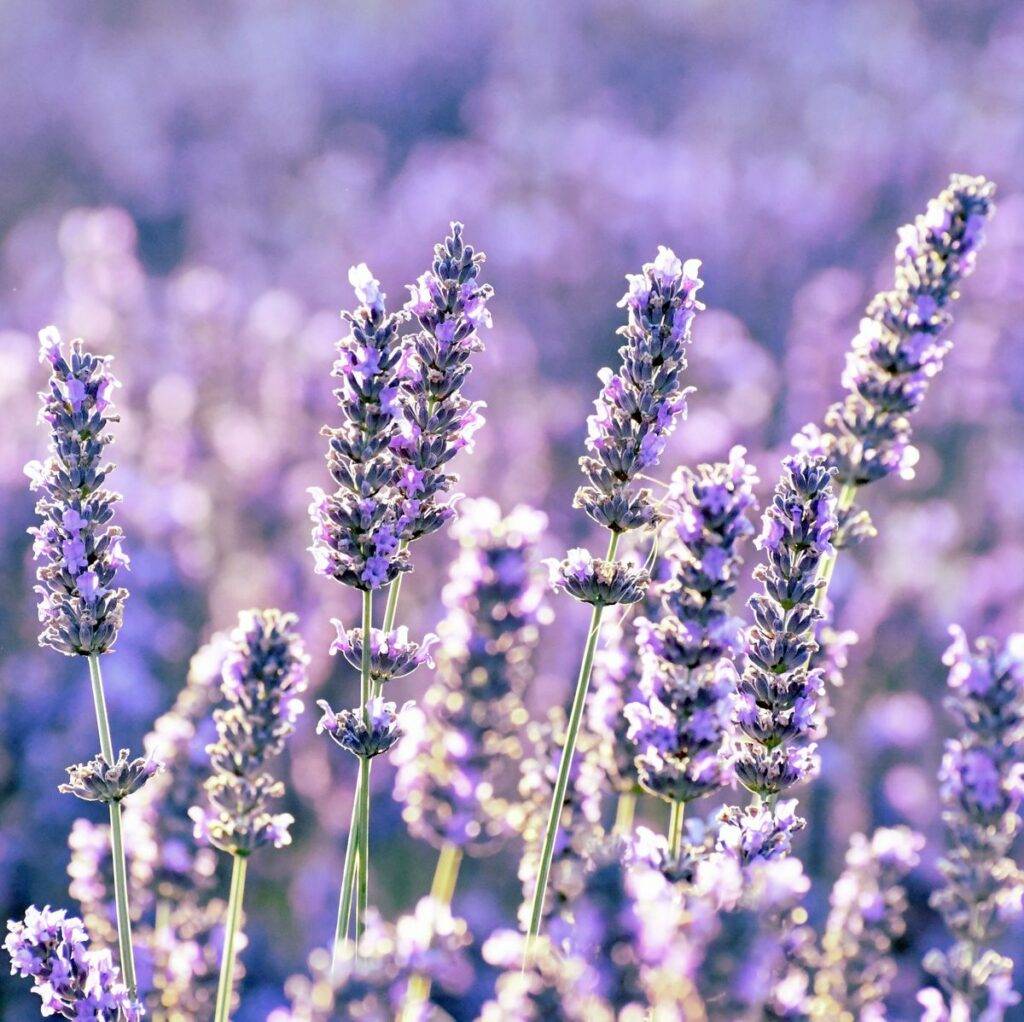
In magic, lavender is commonly used for protection spells, divination rituals, and healing ceremonies. It can be burned as incense or added to charm bags or bath water.
Rosemary: The Herb of Remembrance
Rosemary has been used since ancient times for its medicinal properties as well as its ability to enhance memory and concentration. In herb magic, rosemary is often associated with protection, love, and purification.

It is believed to ward off negative energy and promote positive vibes. Rosemary can be used in various forms such as burning it as incense or adding it to oils or water to prepare magical potions.
Sage: The Cleansing Herb of Clarity
Sage has been used for centuries by different cultures around the world for its powerful cleansing properties.

It is believed to ward off evil spirits and negative energy while promoting wisdom and clarity of thought. In herb magic, sage is commonly used for cleansing rituals such as smudging which involves burning dried sage leaves to purify a space or person’s aura.
Thyme: The Magical Herb of Courage
Thyme has a long history of being regarded as a powerful herb with magical properties that promote courage and strength both mentally and physically.

It is also known for its ability to attract good health, wealth, love, happiness, luck while simultaneously warding off bad luck negativity from entering your life.Thyme can be added into charm bags or placed under pillows for good luck.
These four herbs – lavender, rosemary, sage, and thyme – are widely used in herb magic due to their powerful properties and versatile uses in spells and rituals. Incorporating them into your magical practice can bring a sense of peace, clarity, and strength to your life.
Lesser-Known Herbs Used in Herb Magic
Herb magic is a fascinating practice that has been around for centuries, and many people are familiar with popular herbs such as lavender, rosemary, and sage. However, there are many lesser-known herbs that are just as powerful and effective when it comes to magic.
In this section of the article, we will explore three such herbs – Mugwort, Yarrow, and Rue – their magical properties and how they can be used in your spiritual practice.
Mugwort: The Herb of Dreams
Mugwort is a magical herb that has been used for centuries for its dream-enhancing properties. It is believed that it helps to bring clarity to dreams and visions when used in conjunction with meditation or other spiritual practices.
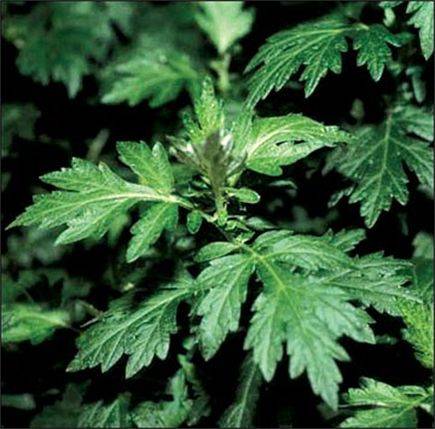
It is also said to have protective qualities that can help ward off negative energy. In addition to its dream-enhancing properties, Mugwort is also known for its healing properties.
It has been used traditionally as a digestive aid, an anti-inflammatory agent, and a general tonic for good health. When it comes to magic, Mugwort can be used in rituals or spells related to dreams and divination as well as protection.
Yarrow: The Herb of Healing
Yarrow is another powerful herb that has been used for centuries in magic practices across cultures. It is known primarily for its healing properties but also has other magical qualities such as enhancing psychic abilities or promoting courage.
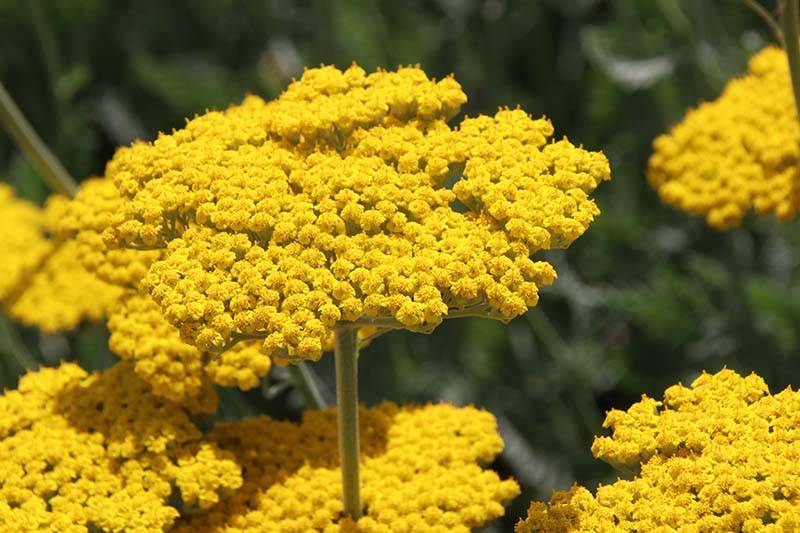
In terms of health benefits, yarrow has been shown to have anti-inflammatory effects due to the presence of flavonoids and other compounds found within the plant. It can help treat everything from colds and flu symptoms to digestive issues like bloating or constipation.
When it comes to magic uses, yarrow can be incorporated into spells or rituals related to healing physical ailments or emotional wounds. It is also believed to be effective for breaking curses or hexes and promoting protection.
Rue: The Herb of Protection
Rue, also known as Ruta Graveolens, is a lesser-known herb that has been used for centuries in magical practices across cultures. It has a long history of being used for protection and purification, particularly when it comes to warding off negative energy or evil spirits.
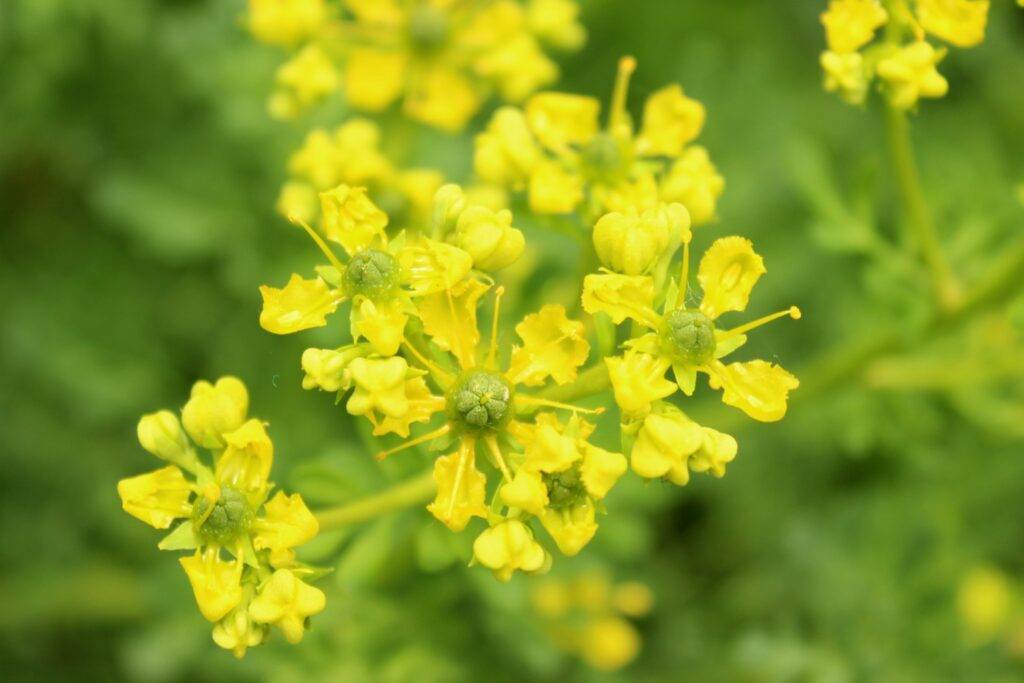
In addition to its protective properties, Rue is also believed to have healing properties that can help treat everything from headaches or menstrual cramps to digestive issues like bloating or constipation.
When it comes to magic uses, Rue can be incorporated into spells or rituals related to protection and cleansing. It is particularly effective when used in conjunction with other protective herbs such as sage or rosemary and can also be used in banishing rituals or spells designed to remove negative energy from your life.
Overall, these three herbs – Mugwort, Yarrow, and Rue – are just a few examples of the many powerful but lesser-known herbs that can be used in magic practices today. Each herb has its unique properties and benefits that make them ideal for different types of spells or rituals depending on your needs!
The Ethics and Safety Concerns with Herb Magic
Ethical considerations when using herbs for magic purposes
Herb magic has been used for centuries to promote healing, good fortune, and spiritual growth. However, it is important to consider the ethical implications of using herbs in magic before incorporating them into your practice.
First and foremost, it is essential to respect the earth and its resources by using only sustainably sourced plants. Additionally, some herbs may be endangered or protected species, so it is crucial to research thoroughly before harvesting or purchasing any plant material.
It is also essential to consider the cultural appropriation of using certain plants in your magical practice. For example, white sage has deep cultural significance for many indigenous peoples and should not be used without proper education on its history and use in their practices.
Similarly, some herbs may be considered sacred or taboo in different cultures and should be approached with care. It is important to understand the energetic impact of herb magic on others around you.
Using herbal magic to manipulate or control others’ thoughts or actions violates ethical principles such as free will and autonomy.
Safety precautions when handling and ingesting herbs
While herb magic can be a powerful tool for personal growth and transformation, it can also pose risks if not handled properly. When handling plant material for magical purposes, it is crucial to wear gloves if necessary and avoid touching your face or mouth until you have washed your hands thoroughly.
Another essential safety consideration is ingesting herbs correctly. Some plants can be toxic when consumed orally or applied topically without proper dilution or preparation. It’s also important to note that certain plants may interact with medications or medical conditions, so always consult a healthcare professional before incorporating any new herb into your routine.
When burning dried herbs as incense or smudging tools like sage bundles, ensure proper ventilation by opening windows or doors. Keep a fire extinguisher nearby in case of emergencies, especially if you’re using candles in your practice. Incorporating herb magic into your spiritual practice can be a powerful way to connect with nature and cultivate personal growth.
However, it is crucial to approach the practice with ethical considerations such as sustainability and cultural appropriation in mind. Additionally, taking safety precautions when handling and ingesting herbs is essential to avoid negative consequences.
By following these guidelines, you can ensure a safe and fulfilling herb magic practice.
Conclusion: Why You Should Try Herb Magic Today!
A. Benefits of Incorporating Herb Magic into Your Spiritual Practice
Using herbs for magic can offer numerous benefits for your spiritual practice. Firstly, it can provide a deeper connection to nature and the earth, helping to ground and center you.
Secondly, incorporating herb magic into your practice allows you to tap into the natural healing properties of herbs which can aid in physical and emotional healing.
Thirdly, practicing herb magic can help to enhance your intuition and psychic abilities as you connect with the energy and essence of the plants. In addition to these spiritual benefits, incorporating herb magic into your practice also allows you to add an element of creativity and personalization to your rituals.
You have the freedom to choose which herbs resonate with you and tailor spells or rituals accordingly. This level of customization allows for a more personal experience that truly aligns with your individual needs.
B. Tips for Beginners Who Want to Try Herb Magic
If you’re interested in trying herb magic but don’t know where to start, here are some tips:
1) Research: Take time to research different herbs and their magical properties before selecting ones that resonate with you.
2) Ethical Considerations: Remember ethical considerations when using plants in magical practices; harvest ethically or purchase from reputable sources.
3) Timing: Consider the timing of spells or rituals as certain phases of the moon or specific times of day may enhance their effectiveness.
4) Preparation: Proper preparation is key when using plants for magical purposes – make sure they are clean, dry, and stored correctly before use.
5) Experimentation: Don’t be afraid to experiment! There is no one “right” way when it comes to practicing herb magic so try different methods until you find what works best for you.
Overall, by taking these tips into consideration along with safety precautions discussed earlier in the article, incorporating herb magic into your spiritual practice can be a rewarding and fulfilling experience that can enhance your connection with nature and spirituality.
























































